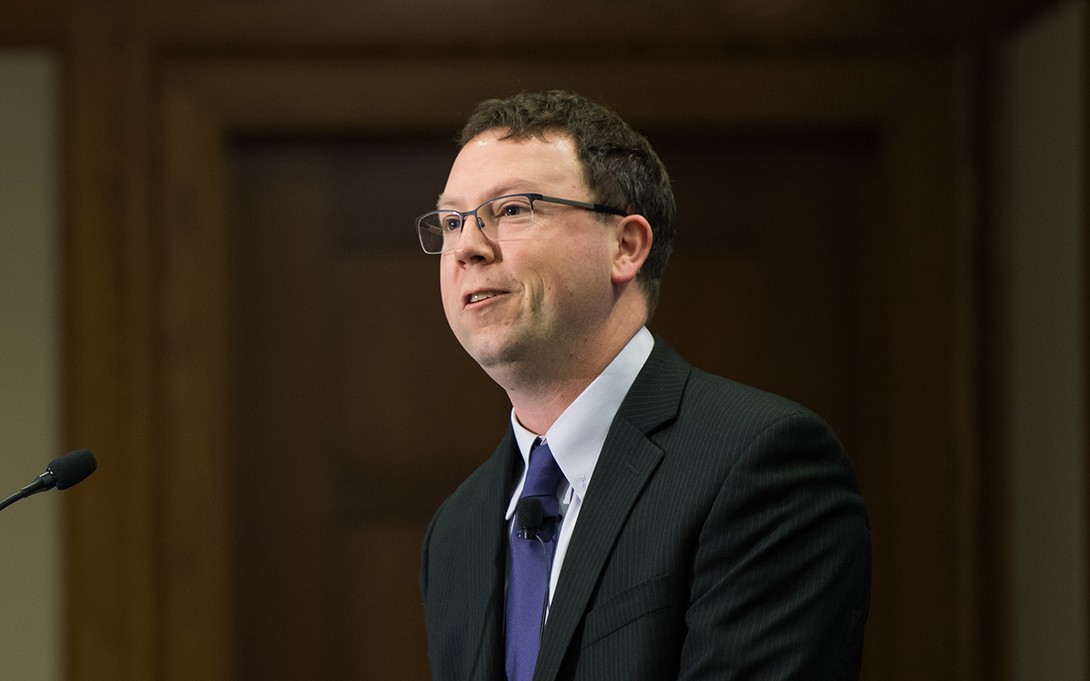
At a forum convened by the House Natural Resources Committee Subcommittee on Energy and Mineral Resources on June 1, Daniel Raimi, Ford School lecturer, testified that capping “orphaned” oil and gas well – those which are no longer productive and have been taken out of service.
The hearing, entitled “Reclaiming Orphaned Oil and Gas Wells – Creating Jobs and Protecting the Environment by Cleaning Up and Plugging Wells”, sought comment from Raimi and other natural resource experts from across the country about the feasibility of capping some 56-thousand such oil and gas wells.
Raimi said workers and communities in oil producing areas have been hit hard in recent months, as low oil and gas prices translate into lost jobs, struggling businesses and falling tax revenue. A federal program to help plug orphan oil and gas well has the potential to alleviate these conditions while also providing environmental benefits.
Raimi said that the actual number may well exceed 2.1 million, according to the EPA. But taking the 56-thousand number, he said a program to plug them all would cost approximately $1.4 billion, preventing above- and below-ground water pollution, saving the release of tons of methane gas, and creating more than 13-thousand jobs.
He suggested that state governments and the Bureau of Land Management have the capacity to set up pilot projects that could prove the efficacy of the effort.
For the full testimony click here (Raimi statement starts at 22:40)
Daniel Raimi is a senior research associate at Resources for the Future and a lecturer at the Ford School. He works on a range of energy policy issues with a focus on oil and gas regulation and taxation and climate change policy. He has published in academic journals including Science, Environmental Science and Technology, Journal of Economic Perspectives, Energy Economics, and Energy Policy; popular outlets including Axios, The New Republic, Newsweek, Slate, and Fortune; and presented his research for policymakers, industry and other stakeholders around the United States and internationally. The Fracking Debate, his first book, combines stories from his travels to dozens of oil and gas producing regions with a detailed examination of key policy issues, and is published by Columbia University Press. He hosts Resources Radio, a weekly podcast from Resources for the Future, and is currently working on his second book focused on the projected effects of climate change in the United States. Daniel received his master's degree in public policy from Duke University and his bachelor's degree in music from Wesleyan University.